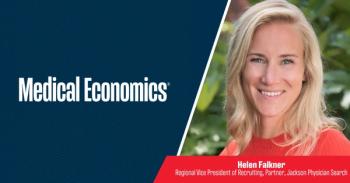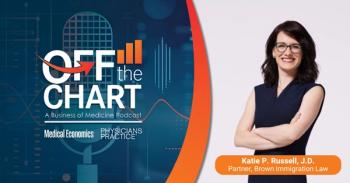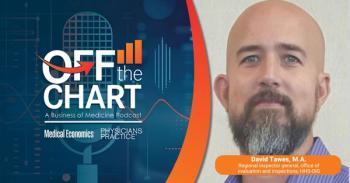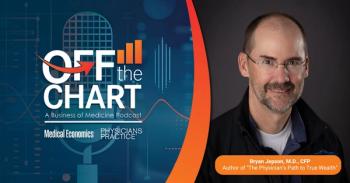
Helen Falkner of Jackson Physician Search explains why retention hinges less on pay and more on leadership, communication, and cultural alignment.

Austin Littrell is associate editor of Medical Economics.

Helen Falkner of Jackson Physician Search explains why retention hinges less on pay and more on leadership, communication, and cultural alignment.

Katie Russell, J.D., partner at Brown Immigration Law, joins the show to discuss how medical practices should respond if ICE agents arrive — and how to stay compliant while protecting patients and staff.

KFF and The Washington Post surveyed more than 2,700 U.S. parents on their views of children’s health, vaccines and trust in institutions. The findings reveal what pediatricians and primary care physicians are up against — and where trust still lives.


President Trump vows to slash prices for weight-loss drugs down to $150, sparking investor concerns and renewed debate over U.S. drug pricing policy.

Joint KFF/Washington Post survey finds broad bipartisan support for food regulation — and sharp divides on vaccines and trust in public health institutions.

Obesity remains overwhelmingly concentrated in the South and Midwest, with rates topping 40% in two states. Trust for America’s Health warns that “this progress is limited and at risk” amid federal cuts to prevention programs.

At the MGMA Leaders Conference 2025, Jason Jobes of Norwood shares a practical blueprint for helping physician practices transition to value-based care.

Jason Jobes of Norwood says successful value-based care transitions depend less on strategy, and more on communication, alignment and expectation setting.

The top news stories in medicine today.

Jason Jobes of Norwood explains why meaningful physician engagement in value-based care starts with simple conversations, not dashboards or data dumps.

For the first time in years, fewer states report adult-obesity rates above 35 percent. These are the 10 states (plus Washington D.C.) with the lowest obesity rates in 2025.

Jason Jobes of Norwood explains why meaningful physician engagement in value-based care starts with simple conversations, not dashboards or data dumps.

Jason Jobes of Norwood discusses how smaller physician groups can find success in value-based care — and why partnerships may be the key.

Compensation climbed to record levels in 2025, fueled by supply-demand imbalances and new expectations among younger physicians.

Jason Jobes of Norwood explains how practices can balance revenue maximization with compliance as regulators intensify audits and scrutiny over coding accuracy.

Jason Jobes of Norwood shares why mastering data interpretation is key to driving performance and reimbursement under VBC.

Jason Jobes of Norwood outlines why taking the right amount of financial risk — and investing in infrastructure — is essential for practices transitioning to VBC.

David Tawes, M.A., regional inspector general at HHS-OIG, joins the show to discuss Medicare’s $15 billion skin substitute boom, fraud risks and how policymakers aim to curb abuse without limiting patient care.

The top news stories in medicine today.

Jason Jobes of Norwood explains why the move toward value-based care is both necessary and challenging — and what physician practices can do to prepare.


The Institute for Healthcare Improvement unveils a four-step framework to help hospitals and practices measure inequities the same way, turning goals into actionable metrics.

Software decisions can make or break your practice’s efficiency and financial health. These five questions help ensure your next investment supports — not complicates — your business.


A year after its landmark artificial intelligence summit, JAMA says health systems are deploying unproven algorithms with little evidence they improve outcomes — or even do no harm.

Bryan Jepson, M.D., CFP, explains what “true wealth” really means for physicians.

The top news stories in medicine today.

A new KFF survey finds that while 77% of Americans heard President Trump’s claim linking Tylenol use during pregnancy to autism, most aren’t convinced.

A KFF survey shows 77% of U.S. adults heard President Trump’s claim linking Tylenol use in pregnancy to autism. Most don’t believe it.